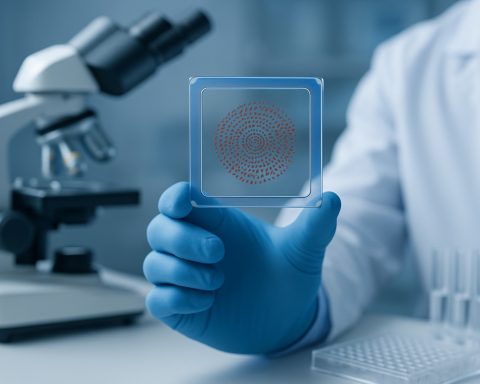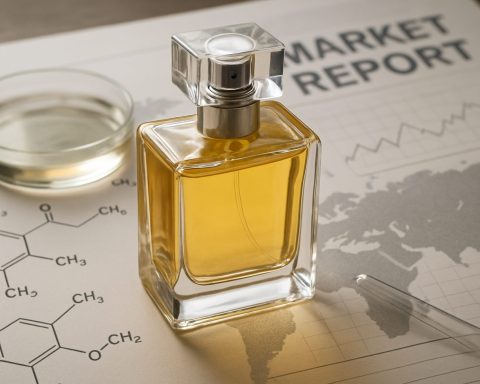- Porsche is transforming EV battery recycling, setting new standards for sustainability in the automotive industry.
- The multi-phase project focuses on securing essential materials like nickel, cobalt, manganese, and lithium through innovative battery recycling techniques.
- Disassembled batteries are processed into ‘black mass,’ allowing for the extraction of high-purity elements crucial for maintaining Porsche’s performance standards.
- Future EV models will incorporate recycled materials, demonstrating closed-loop recycling and challenging industry limits.
- Porsche aims to comply with upcoming EU battery regulations, emphasizing a circular economy and reducing environmental impact.
- The initiative underlines Porsche’s commitment to responsible innovation, integrating luxury and sustainability.
A gleaming Porsche sits parked in the showroom, a testament to luxury, innovation, and—now more than ever—sustainability. The brand has embarked on a groundbreaking journey, transforming the way electric vehicle (EV) batteries are recycled and reused. This multi-phase pilot project doesn’t just tinker with parts; it revolutionizes the way we think about the lifecycle of our cars.
Porsche tackles one of the automotive industry’s most pressing challenges: securing essential raw materials like nickel, cobalt, manganese, and lithium for future EV production. Batteries from development vehicles, once destined for obsolescence, are disassembled and processed through a sophisticated mechanical shredding technique. This grinding transformation yields ‘black mass,’ a raw granulate packed with potential, weighing in at around 65 tonnes so far. The excitement of this journey lies in the next step: extracting these precious elements from black mass with scientific precision.
As Porsche pursues perfection, every gram of nickel or lithium becomes crucial. High-purity elements, gleaned from the recycled black mass, play a critical role in maintaining the performance standards that turn a Porsche drive into an exhilarating experience. By showing that recycled materials can meet the high-quality benchmarks required for new EV battery cells, Porsche not only sets a new standard but also challenges preconceived limits in the industry.
Plans are already in motion for the final phase—crafting battery cells that incorporate a defined percentage of this recycled content. These will eventually power new EV models, showcasing a real-world test of closed-loop recycling. This isn’t just about ticking a sustainability box. It’s about redefining efficiency and luxury, balancing them in a way that looks to the future instead of the past.
This ambitious strategy echoes the words of Porsche’s Executive Board Member for Procurement, Barbara Frenkel, who emphasizes the company’s dedication to a circular economy. The model serves as a buffer against the turbulence of geopolitical market forces and environmental impacts. By embracing this sustainable approach now, Porsche hopes to meet—and exceed—upcoming European Union battery regulations slated for 2031, which will mandate increased recycled content and robust traceability.
Porsche’s pioneering initiative embodies more than recycled batteries; it is a commitment to responsible innovation, seamlessly integrating sustainability with tradition. While offering a sophisticated solution to raw material scarcity, Porsche reaffirms its position as a leader in sustainable automotive production—a vision that’s as bold as its vehicles on the road. The road ahead might still hold challenges, but it’s charged with promise, paving the way for a more sustainable automotive future.
Porsche’s Revolutionary Approach to Sustainable EV Batteries: What You Need to Know
Unveiling Porsche’s Sustainable “Black Mass” Innovation
Building on its reputation for luxury and innovation, Porsche is making waves in sustainability by revolutionizing how we approach electric vehicle (EV) battery lifecycle management. At the heart of this initiative is the transformation of used batteries into “black mass”—a raw, granulate form that houses essential materials like nickel, cobalt, manganese, and lithium. This innovative process is not just about meeting current demands but setting industry-wide precedents.
How Porsche is Tackling EV Battery Recycling
1. Mechanical Shredding: Used battery packs are disassembled and processed using a mechanical shredding technique, generating black mass.
2. Material Extraction: The black mass undergoes precision extraction to recover high-purity materials needed for new battery cells.
3. Test-Drive Closed-Loop Recycling: The final phase includes integrating a defined percentage of these recycled materials into new EV battery cells, setting the stage for closed-loop sustainability.
Real-World Implications of Porsche’s Pilot Project
How-To Steps & Life Hacks:
Owners may be intrigued to know how this affects them directly. For now, knowing that Porsche is actively working on future-proofing the EV market through sustainable practices is essential. Engage with dealerships about their sustainability initiatives, consider the life-cycle environmental impacts of your vehicle choices, and participate in recycling programs advocated by manufacturers.
Market Forecast & Industry Trends:
With European Union battery regulations expected by 2031, demanding increased recycled content and traceability, Porsche’s project positions the company at the forefront of compliance. This strategic advantage may very well echo across the industry, encouraging competitors to explore similar innovations.
Security & Sustainability:
By utilizing recycled materials, Porsche is not only reducing dependency on volatile raw material markets but also ensuring security in its supply chain. This focus on sustainability precludes the impact of geopolitical shifts and aims to stabilize production costs.
The Controversies & Limitations of Battery Recycling
While Porsche’s efforts are groundbreaking, it’s important to note several industry-wide challenges:
– Cost of Recycling: Current technology makes battery recycling expensive, although Porsche’s innovative methods may reduce costs in the future.
– Efficiency Levels: The efficiency of material extraction from black mass might not yet match traditional mining processes, though this is rapidly improving.
– Collection Systems: Effective collection and recycling infrastructure must be developed to support these initiatives fully.
Actionable Recommendations for Enthusiasts and Investors
– Stay Informed: Keep up with Porsche’s engineering breakthroughs and broader EV trends by following authoritative automotive news outlets.
– Eco-Conscious Purchasing: If you’re considering an EV, think about the manufacturer’s commitment to sustainability as part of your decision-making process.
– Engage in Recycling Programs: Support initiatives that promote strong recycling systems locally and globally, reinforcing the entire supply chain.
Quick Tips for Consumers
– Demand Information: Ask car dealerships about the recycled content of the vehicles you’re interested in.
– Sustainability in Service: Ensure your car is serviced by providers aligned with recycling and reuse practices.
Porsche’s journey toward sustainable innovation extends beyond progressive ideas. It calls into question the very foundations of automotive production, asking us all to rethink the symbiosis of luxury and sustainability in modern vehicles.
For more insights on Porsche’s latest developments, visit the official Porsche website.











